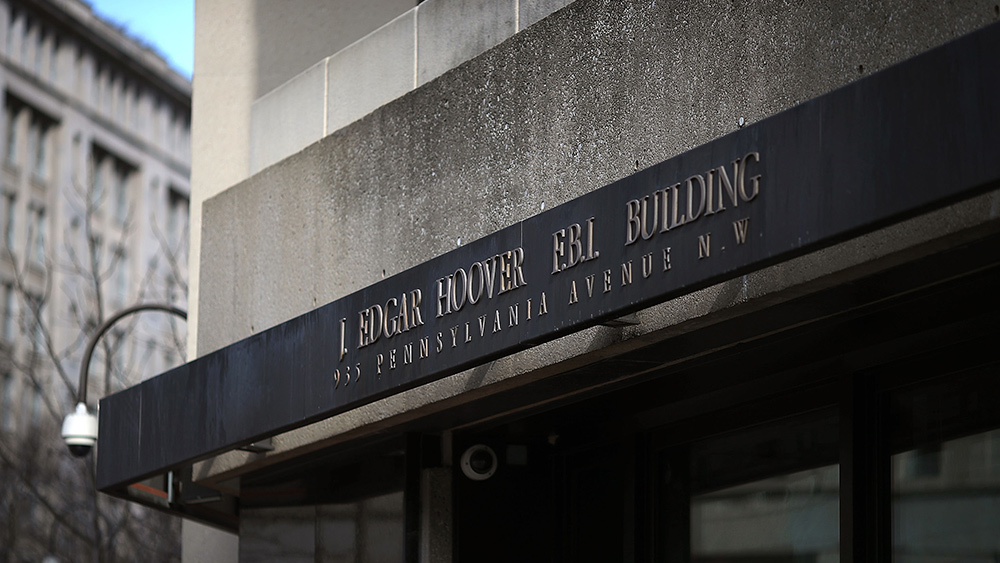
Brown took to Twitter on March 13 to announce that his track "Little Seed Big Tree," which was released in September last year, was taken down from the platform.
"SPOTiFY stream the streams and censor artists like they have with my last song TOOK IT DOWN just put it down the memory hole! FREE EXPRESSiON AS REVOLUTION," Brown wrote.
Spotify claimed that it removed the song for violating its misinformation policy.
"Spotify prohibits content on the platform which promotes dangerous false, deceptive, or misleading content about COVID-19 that may cause offline harm and/or pose a direct threat to public health," a spokesperson for the company told Reclaim the Net.
"When content that violates this standard is identified it is removed from the platform."
The song featured lines such as, "Masonic lockdown, soul shot down/ State shakedown, a mass breakdown/ Put your muzzle on." The track also alluded to forced vaccinations: "A forced vaccine, like a bad dream/ They'll plant a microchip, every woman, child and man."
Brown is an outspoken critic of various restrictions made in response to the COVID-19 pandemic, including lockdowns, mask mandates and vaccine passports. He tweeted a month after the song's release, "NO LOCKDOWN NO TESTS NO TRACKS NO MASKS NO VAX." (Related: Now is the time for Americans to rebel against lockdowns, mask laws and forced vaccination.)
The former Stone Roses frontman also refused to headline the music festival Neighbourhood Weekender in Britain last September because the festival requires proof of vaccination as a condition for entry. He stated before that he would never perform at any venue that asks for vaccine passports.
Big Tech, mainstream media spurs "new age of censorship"
This is not the first time that Big Tech and mainstream media have suppressed views that are critical of various pandemic restrictions. In an opinion piece published in December in the Wall Street Journal, novelist and former New York Times reporter Alex Berenson decried what he called a "new age of censorship" spurred by tech giants and traditional media companies amid the pandemic.
Berenson witnessed this clampdown on free speech firsthand. Amazon twice refused to allow him to sell his self-published booklets about COVID-19 on its online marketplace. The novelist expressed his dissatisfaction with the way the coronavirus has been handled in the booklets, calling control measures counterproductive and unsupported by science.
And yet, Berenson noted, Amazon has continued to sell "Mein Kampf," the autobiographical manifesto of Nazi Party leader and German dictator Adolf Hitler. The tech giant has maintained in its previous statements that it believes in providing access even to books that some people may find objectionable.
"But when it comes to COVID, Amazon has a different standard," Berenson said, adding at least half a dozen other authors told him that their books were pulled out from the tech giant's platform.
Many other tech companies have also aggressively censored during the pandemic. YouTube, for instance, disclosed in October that it took down more than 200,000 videos about the coronavirus. Meanwhile, Facebook attached warning labels to news articles and removed groups that oppose pandemic restrictions, besides deleting videos. (Related: Big Tech's censorship is leading to "the takeover of humanity.")
Berenson also condemned news outlets, book publishers and scientific journals for their reluctance to publish information that fuels debate. Last year, a group of Danish researchers struggled to find a journal willing to publish their study, which showed masks do not appear to protect their wearers.
The researchers managed to convince a journal to print their paper but the journal's editor had to write a piece in defense of her decision to run it. In addition, ensuing news articles about the study were colored with skepticism, which Berenson observed is absent from the coverage of most other peer-reviewed studies. For instance, a New York Times headline read: "A New Study Questions Whether Masks Protect Wearers. You Need to Wear Them Anyway."
Berenson is currently writing a book about the pandemic but is having a hard time landing a publisher. Two mainstream publishers rescinded their offers, even though his booklets sold nearly a quarter-million copies. An editor at one of the firms told him that conservative imprints are some of the few places left that are interested in free speech.
Learn more about how Big Tech and mainstream media suppress Americans' fundamental rights at Censorship.news.
Sources include:
Please contact us for more information.






















